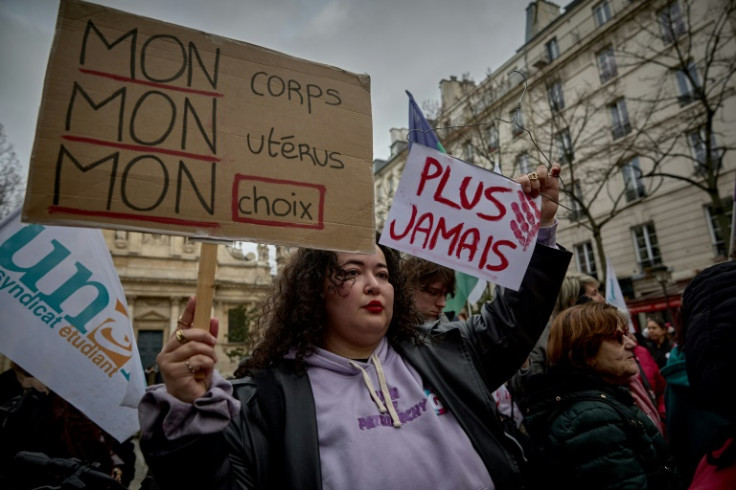
French lawmakers resoundingly voted in a joint session at the Palace of Versailles on Monday to embed a woman's right to an abortion in the country's Constitution.
This crucial measure, pledged by President Emmanuel Macron in response to recent challenges to abortion rights in the U.S., received an overwhelming 780-72 vote.
According to Reuters, the joint session, attended by 925 lawmakers from both houses of parliament, witnessed scenes of elation as almost the entire assembly stood in a protracted standing ovation. Women's rights activists across France celebrated the decision, expressing relief and satisfaction after the setbacks to abortion rights in the U.S.
Prime Minister Gabriel Attal, addressing the lawmakers before the pivotal vote, urged France to become a global beacon for women's rights. He paid homage to Simone Veil, a pivotal feminist and legislator who spearheaded the decriminalization of abortion in France in 1975.
"We have a moral debt to women," Attal said, delivering an impassioned and determined speech. "Make Simone Veil proud," he added, prompting yet another standing ovation, AP News reported.
Both the National Assembly and the Senate had previously approved the bill to amend Article 34 of the French Constitution, explicitly guaranteeing a woman's freedom to seek an abortion and aiming to make the right irreversible.
Despite widespread public support, the measure must secure a three-fifths majority in the joint session for final ratification. No major political parties in France have opposed the right to abortion, but some lawmakers have previously voted against its constitutional inclusion.
Celebrations erupted across France ahead of the parliamentary session, with Sarah Durocher from the Family Planning movement describing the vote as "a victory for feminists and a defeat for anti-choice activists."
The French government argued that the right to abortion is under threat globally, pointing to the 2022 U.S. Supreme Court decision overturning a 50-year-old ruling. This decision spurred renewed debate in France, particularly amid rising far-right political influence across Europe.
The constitutional amendment process is a rare event in France, with the Constitution amended only 17 times since its enactment in 1958. The latest amendment in 2008 granted more powers to the parliament and allowed citizens to bring grievances to the Constitutional Court.







